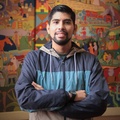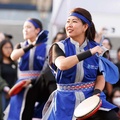In recent years, various jobs have emerged that meet the needs of a market full of websites, social networks and online products that will require a series of professionals (communicators, designers and content generators) who are could be grouped into a flexible category: the new digital trades (although in reality they involve much more). These three Peruvian Nikkei show part of the great diversity of functions and qualities required to make a place for themselves in this labor market.
* * * * *
A Nikkei on Google
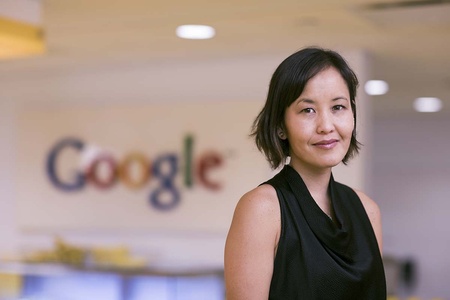
Cinthya Yukari Urasaki is Peruvian, but lives in the United States, where she is a designer and User Experience (UX) specialist for Google. Since she was a child she liked to draw, in the summers she took craft and art classes, and she liked to create, “use my imagination and be able to express things visually,” she says via email. In high school, I made logos, typography, and graphic designs.
“I relate all of this quite a bit to my work today,” says Cinthya, who uses visual communication daily. When she began her career as a designer at the Toulouse Lautrec Institute in 1994, she was already designing interfaces (applications, websites, books, brochures and packaging, among others), translating concepts and functions through visual products. As a UX (User Experience) Designer it is important for her to understand the needs of her client, through technological products.
In 2002, Cinthya studied a master's degree in “Human-Centered Design” in Chicago. “It was a new discipline to understand how to shape technology to create new products and experiences.” That allowed him to get a job at Microsoft, in Seattle, where he participated in the MSN Messenger project, the chat application. “It was a unique and very valuable opportunity, I understood the impact that the work we do has on the lives of millions of people and the responsibility with which each experience we design must be created.”
A commitment to digital
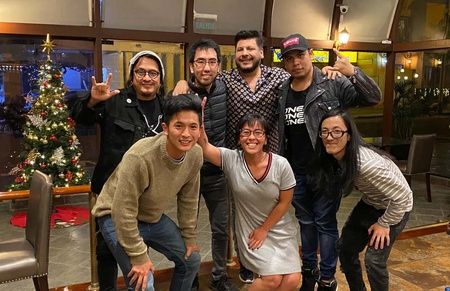
Natsumi Fukuhara Salazar remembers that she began exploring the digital world ten years ago, when brands were not betting on this means of dissemination. He remembers that he started learning about Facebook applications, studying graphic design and marketing, as well as other short courses and tutorials on YouTube, and contacting potential clients and communication agencies. “I was a spammer, I wrote to all the agencies, but no one hired me,” she says from California, where she is working from home.
Her personal project “ They say ”, a fan page that sought to spread what women think, feel and want, was very successful since its inception in 2013, to the point that it helped her to be hired by the Inventarte agency, where she began to See high-level clients. Later he was in several renowned agencies (Fahrenheit DDB, Trece and Boost) and at the BBVA bank, where he had high-budget campaigns. “We did campaigns related to gastronomy, music and other topics in addition to gamification, B2B and mobile banking,” says Natsumi, who, at the end of 2019, joined the Amsterdam agency.
With them he obtained important accounts, such as the beverage brand AJE, with which they have carried out campaigns throughout Latin America and India. “It was a super challenge that I am very proud of for my team.” At the end of 2021, Natsumi joined the Pasaporte Studio team, working with clients in Peru, Greece, Australia and Mexico. “We work with different cultures and languages, from which we learn a lot. The schedules and the language are crazy, but, fortunately, now there are tools like Google Translator.”
Marketing and digital agencies
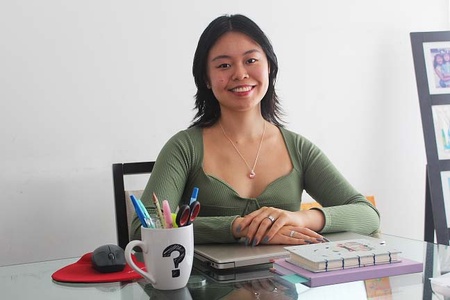
Camila Watanabe Yong studied Communication at the University of Lima, where she specialized in marketing, advertising and corporate communication, careers that by 2016 were already in high demand in an increasingly digitalized labor market: according to the ERESTEL survey, that year there were already In Peru nearly six million smartphones. Camila wanted to be an 'all-rounder' in communication, not only in the digital field, despite the fact that her colleagues recommended that she specialize.
He began doing internships at his university, organizing events, and in 2020, in the middle of the pandemic, he joined the digital marketing agency Cabuchon, where he dedicated himself to seeing retail company accounts for European luxury brands. “At first it was difficult for me to get a job due to the pandemic, I already had proposals from several places, but everything stopped due to the crisis,” he says. An advantage of his specialty is that he could do his work from home. “We did home offices and meetings through Google Meet or Zoom.”
Last year he joined the transnational agency Another , a strategic communications agency, with clients as important as Netflix and which has offices in Mexico, Argentina, Colombia and Brazil. “Here I realized that it helped me to have a combination of specialties, such as journalism and graphic design, to be able to face different obstacles. In digital marketing everything is planning, but it is also important to know other tools that allow us to speed up times,” says Camila from home, through Google Meet.
A Nikkei family
Cinthya Yukari Urasaki says that the pandemic took them home, in New York, where she has lived for more than ten years. “What I have learned most from the pandemic is to take a break in life and not run all the time,” he says, adding that he likes to work, but that he tries to take time for himself, to read, go for a walk with his dog and Enjoy your family, to give balance to your daily life.
“The family I grew up with is very important to me and the family I am creating. The traditions we have, more than Japanese customs, are those of a Japanese family living in Peru. All this experience has shaped who I am and I carry it with me always. My family is very big, it is all over the world, but thanks to technology we are always in contact,” says Cinthya, who has her obachan Okuyama as her heroine.
“She has taught us that you can make your dreams come true if you want to. She has proven it several times in her life, from being an inspiring mom and grandmother, to acting in plays, being the president of Fujinkai, and winning karaoke trophies. Every story of my obachan is an inspiration,” says Cinthya.
Japanese values
Natsumi Fukuhara says that at Pasaporte Studio there is a great orientation towards Japanese values (all the founders are Nikkei): humility, respect, honesty, teamwork, effort and gratitude. “Here what is promised is done. The word is worth a lot, the idea is that this is the best job of your life,” she says, very happy to be able to make her personal life compatible with her work.
“At the agency we use Workplace for work meetings and calls. I have discovered that what helps me the most is to have work and personal things in differentiated spaces so that one does not invade the other,” says Natsumi, adding that they also use other Google tools (Meet, Drive). An advantage of digital trades is that the work can be done remotely. “You hire people you've never seen in your life,” he adds, “it allowed me to spend more time with my family.”
His family is in Los Angeles and Lima and, during the pandemic, they have been able to get used to video calls. “The hardest thing about the pandemic has been the lives we have lost and the positive thing is that we learned that there are no limits, neither in distance nor in learning from other cultures,” says Natsumi, adding that in the digital field everything changes “at the same time.” touch”, you have to take advantage of the moment. “When I started it was 'thousand trades' because the important thing was to solve problems. Handling tools is easy, the most difficult thing is handling equipment, understanding that there is no right or wrong, everyone has their own rhythm.”
Of Asian origins
Camila Watanabe Yong says that her family comes from the Japanese prefecture of Kumamoto, but that she does not know much more about that, despite the fact that her last name, so recognizable in Peru by the poet José Watanabe (who also wrote scripts for television), He has always been curious. As a child she studied at a Chinese school in Lima, Juan XXIII, so her family did not teach her Japanese words so as not to confuse her because of her Chinese classes.
“My father instilled Japanese traditions in us and on vacation he participated in a group of leaders in the AELU. I also took Japanese dance classes at the Peruvian Japanese Association, but I would like to be able to learn Japanese and learn more about this culture,” says Camila, who fondly remembers those experiences within the Nikkei community. Without making specific reference to Japanese values, he says he can't think about his work without giving it ethical guidance. “They always taught me to dedicate myself to my work.”
Fortunately, he is in a job where schedules are respected and a balance between personal and work life is sought. “You are a person, not a robot, and the values are at the same level as the demands of the job,” says Camila, emphasizing the importance of soft skills within her job. “It is beautiful to be the official voice of companies, I have had experiences where I have seen how creativity can change many problems.”
© 2022 Javier García Wong-Kit



